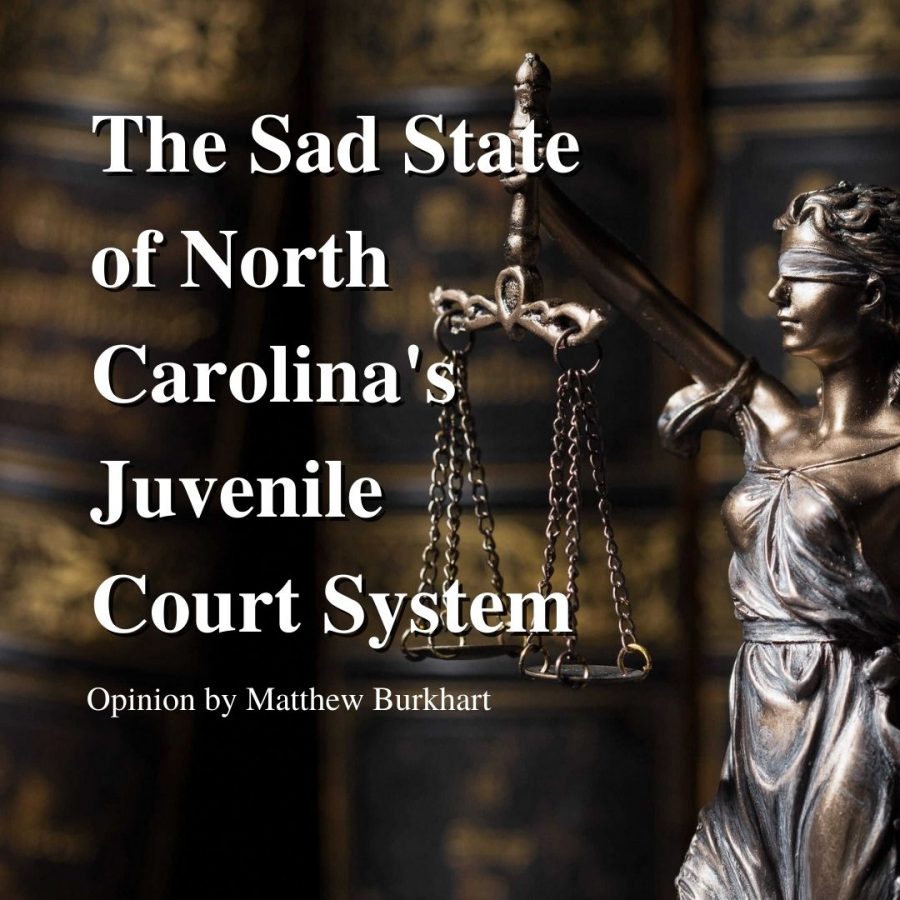The Sad State of North Carolina’s Juvenile Court System
Shielded from the public eye, North Carolina’s Juvenile Court System has sent thousands of children, particularly children of color, to the courtroom over minor infractions over many years. These trials often lead to these children, as young as six years old, being put on probation, being sent to behavioral schools, and in the rarest cases, being sent to juvenile detention centers.
North Carolina’s state law defines delinquent juveniles as “Any juvenile who, while less than 16 years of age but at least 6 years of age, commits a crime or infraction under State law or under an ordinance of local government, including violation of the motor vehicle laws, or who commits indirect contempt by a juvenile as defined in G.S. 5A-31.” North Carolina’s minimum age of six years old is the youngest in the entire world.
Last month, a six-year-old stood trial for property damage after picking a tulip at a bus stop in Wilmington, NC. This child is sadly only one of the many victims of North Carolina’s broken and outdated juvenile court system.
The only bill that has passed with the purpose of protecting children from prosecution was the Raise-the-Age provision, which became effective on December 1st, 2019. This law raised the age of teenagers being charged as adults in the criminal justice system to 18. While this bill was certainly beneficial for teenagers, it still did nothing to address the ridiculously young minimum age of six years old. Jay Corpening, a chief district court judge in New Hanover County, emphasized how irrational the minimum age of six years is in terms of court: “Should a child that believes in Santa Claus, the Easter Bunny and the Tooth Fairy be making life-altering decisions?” Only now has actual action been taken to address this issue.
NC State Representative Marcia Morey (D-Durham) filed House Bill 261 on March 11th, which aims to raise the minimum age to ten years old. This bill only changes every “6 years old” to “10 years old” within existing juvenile court laws, meaning that the bill does nothing to specify what children can go to court for other than “a crime or infraction under state law or under an ordinance of local government.” This is why picking a single tulip from a bus stop can send a child to court.
A much more obvious problem in North Carolina’s Judicial Court System is how disproportionately it treats children of color. From 2015 to 2018, around 7,300 complaints were filed against children ages 6 to 11 years old. Although North Carolina has a black population of 22.1%, a whopping 47% of these complaints were made against black children. Mary Stansell, juvenile chief at the Wake County Public Defender’s Office said, “When a cop picks up a white boy, he takes him to his parents. But if he is black, he takes him to the state.”
Lyana Hunter, the six-year-old’s attorney, emphasized the lasting impact that juvenile court can have on children: “The earlier that you introduce a child to the criminal justice system, the higher the chances are that they will remain in the criminal justice system.” After countless years of inaction and outdated legislature regarding children and their futures, now is time for us to act against this broken system.
The best thing you can do to help this cause is to write to or email your local state representative and senator and request them to sponsor House Bill 261 and advocate for clearer laws regarding juvenile delinquency.
You can find your local House and Senate members at https://www.ncleg.gov/FindYourLegislators
Template Email:
Dear ___,
My name is ___ and I am concerned about the current minimum age for juveniles to be sent to court. House Bill 261 would effectively exclude children under 10 years old from having to represent themselves in court and suffer the consequences for infractions committed at such a young age. By sponsoring House Bill 261, you would give young children who still might not have a firm grasp on what is right and wrong a chance to mature in our society without being forced to make such important choices that could affect their entire lives at such a young age. Furthermore, more specific legislation regarding the clarity on what constitutes a crime committed by a child would effectively reduce crime committed by children and also the trauma that children may endure in court. Therefore, I would greatly appreciate it if you would be willing to co-sponsor House Bill 261 and dedicate some time to making measures that would leave children out of our courtrooms.
Thank you!
___
Your donation will support the student journalists of Enloe Magnet High School, allowing us to cover our annual website costs. We are extremely grateful for any contribution, big or small!

(He/him)
Matthew is a senior and is very excited to be the news editor this year! He loves writing about political issues and local news. Outside of...











